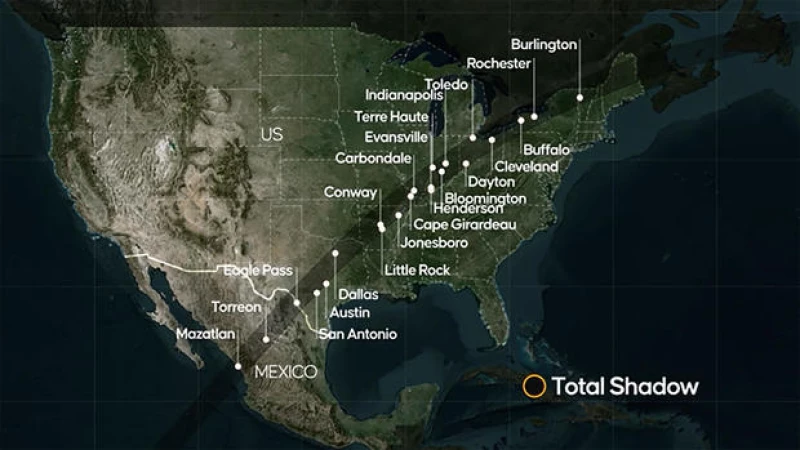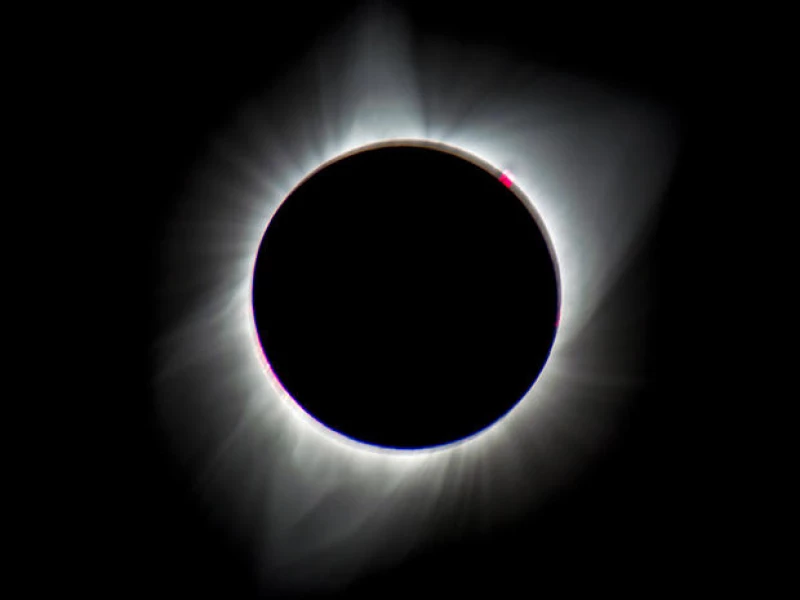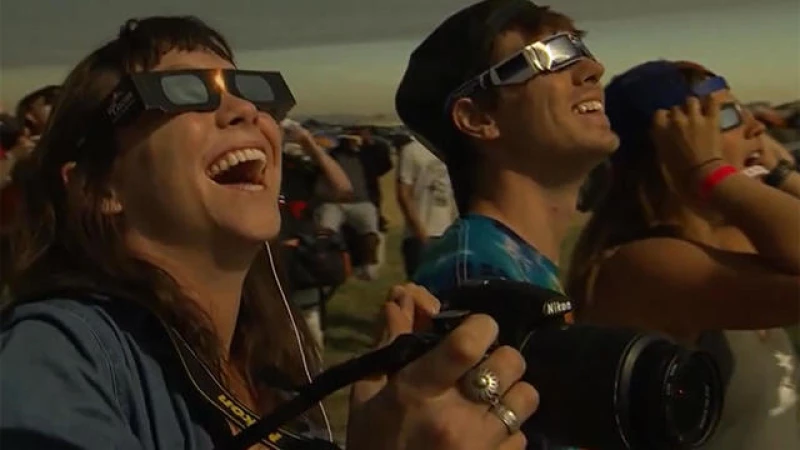Monday's total eclipse of the sun won't be just any old eclipse; it's being referred to as the Great American Eclipse, because it's going through some very populated areas of the United States. Solar eclipses actually occur every 18 months or so, but during most of them the spectacle is "wasted" on empty ocean. But tomorrow afternoon, the moon's shadow will leave 32 million Americans in 15 states briefly in the dark.
- Solar eclipse maps show 2024 totality path, peak times
Where is the best place to view the eclipse?

What exactly is a total eclipse?
Astronomy author and educator Ed Ting says that in a solar eclipse, the moon passes exactly between your eyes and the sun, and casts its shadow on the Earth. That shadow is only about 100 miles wide, so you have to be in a specific place to witness the solar eclipse in totality.
It's all the result of a freakish cosmic coincidence, when the moon and sun appear to be the exact same size in the sky. "The sun is 400 times bigger than the moon," said Ting. "But by happy coincidence, it is also 400 times further away. So, from our perspective they are the same size."

Experience the Wonders of a Total Solar Eclipse
As the moon passes in front of the sun during a total solar eclipse, the world around you transforms in unexpected ways. The darkening sky brings a sense of awe and anticipation. "The wind sometimes starts to pick up," remarked Ting, a seasoned eclipse observer. "Animals become disoriented, and even the streetlights flicker on."
Yet, the scene is not reminiscent of a typical nighttime. Ting described the sky taking on a mystical, fish-scale-like appearance, causing a profound emotional reaction. "You can understand why ancient civilizations attributed spiritual significance to eclipses," Ting continued. "The experience is so intense that half of first-time viewers may find themselves in tears."
Preparations for the Spectacle
Residents in the path of the upcoming eclipse are bracing for more than just a cosmic event. Increased traffic is expected as enthusiasts flock to prime viewing locations.
Leading the preparations is Cari White, chair of the Eclipse Oversight Committee in Jonesboro, Arkansas. White is overseeing plans for the 2 minutes and 17 seconds of totality in the town, during which the sun will be completely obscured. Anticipating a doubling of the town's population to 160,000 visitors, White expressed enthusiasm for the event. "Our emergency services and local utilities have been diligently preparing for over a year," White stated. "This eclipse is a significant moment for our community."
Jonesboro is just one of many communities nationwide gearing up for the celestial phenomenon. "People everywhere are getting ready for this extraordinary event," White added. "It's a monumental occasion that is capturing the attention of the entire country."
- How Americans in the solar eclipse's path of totality plan to celebrate the celestial event on April 8
- Here's how one airline is planning to provide a total eclipse experience — from 30,000 feet in the air ("CBS Mornings")
- Hotel prices soar as tourists flock to see solar eclipse
How to safely view the eclipse
Looking directly at the sun can permanently damage your vision, which is why you need eye protection. Cari White's committee in Jonesboro ordered 75,000 pairs of special glasses. "We have been working for weeks to pass them out to all the schools, we've passed them out at all of the major businesses, the library, the city hall," she said. "If you don't have a pair of glasses and you live in Jonesboro, I don't know how to help ya'."
But here's something about the glasses you might not know: According to Ting, "Once totality hits, you can take the glasses off. Because there's not much light coming from the sun. Once the sun starts to come out again, you do need to remember to put your glasses back on!"
Cameras need protective filters, too. But Ting offers a classic piece of advice for would-be photographers: "See your first eclipse, photograph your second. I have seen this personally where there is an eclipse, and the person is not looking up; they're fiddling with their camera. And then, before you know it, the eclipse is gone, you never saw it – and you didn't get the picture."
What about the weather?
Of course, all the precautions in the world won't help you if the conditions aren't right. Asked what she'll do if the weather is bad on Monday, White said, "I guess I'll cry. Don't talk to me about the bad stuff."
Fortunately, it's mostly good stuff.
"When you consider that this truly is the Great American Eclipse, because it goes through the center of the United States, it just puts you in awe," White said. "I just know that it's gonna be wonderful. And I'm gonna take it all in, every second of my two minutes, I'm gonna take it in and enjoy."
- Looking for the best places to see the April 8 solar eclipse in the totality path? You may have to dodge clouds
- Eclipse cloud cover forecasts and maps show where skies will clear up for April 8's celestial show
For more info:
Story produced by Annie Iezzi. Editor: George Pozderec.







